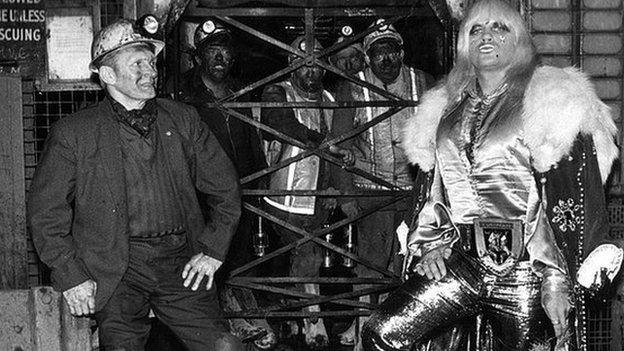Wrestler Adrian Street: 'The pit pony that won the Grand National'
- Published
'Exotic' Adrian Street soaked up the reaction to his flamboyant act
It may seem strange to think the outrageous clothes, hairstyles and makeup of 1970s glam rockers could have their roots among coalminers in the south Wales valleys.
Or that the man credited by some as their inspiration spent his childhood searching the hills for "Cowboys and Indians" and wishing Hitler would drop a bomb on his house.
But then again, there is little normal about the story of Adrian Street, the "pit pony who won the Grand National" - the boy from Brynmawr who ran away and became a wrestling star.
If it sounds like a movie script, it soon will be, with a final draft nearing completion and filming to start in August 2017.
"You look at pop culture, the styles of Boy George, David Bowie and glam rock.
"But Adrian came long before. His costumes might have inspired people like Elton John and Marc Bolan," said the film's producer and director Joann Randles.
"He could have started something and has almost been forgotten. Not enough has been done on a true British icon."
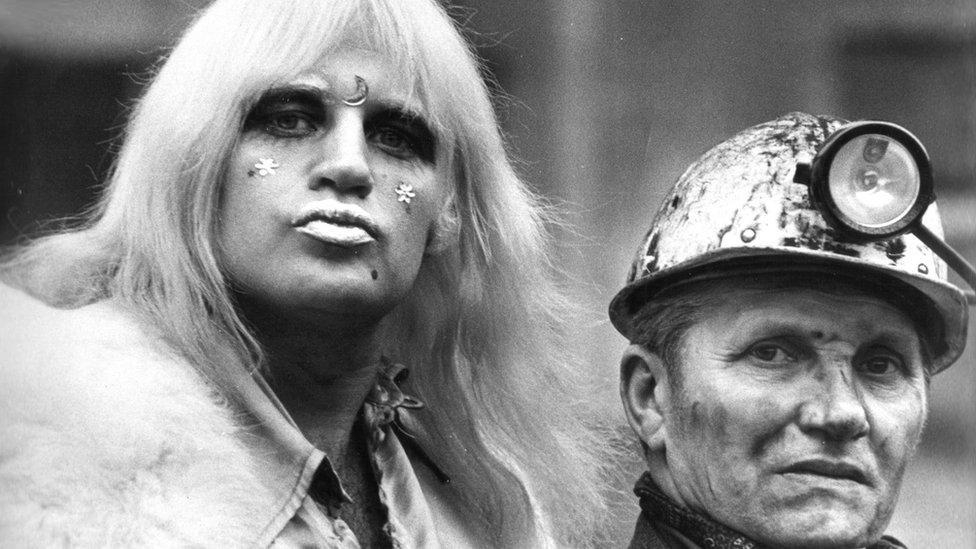
In 1973, Adrian Street returned to the Blaina colliery where he worked with dad Emrys, who laughed at his plans to become a wrestler
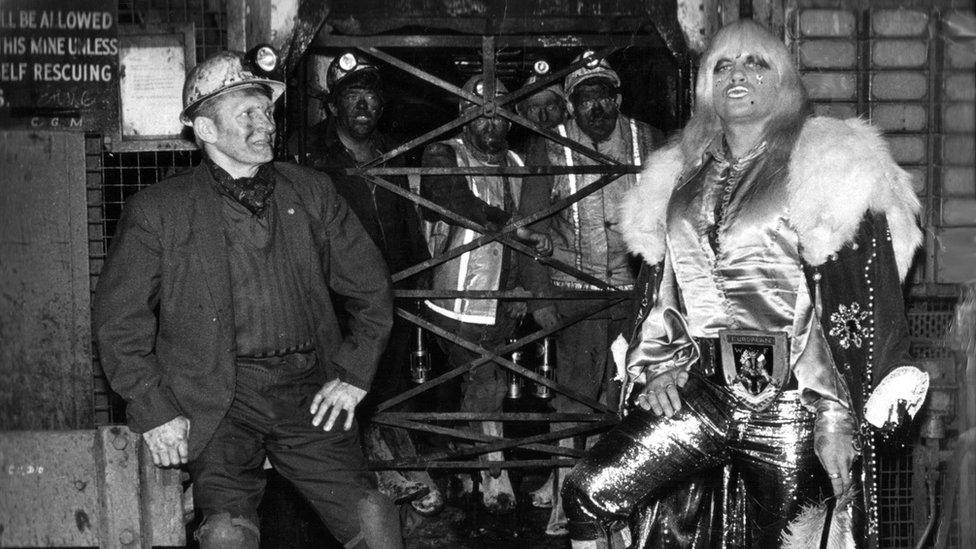
Mr Street's childhood was spent hunting for "Cowboys and Indians" in the Gwent valleys and collecting shrapnel from World War Two bombs to "blow up wagons".
There was also his gas mask, which he would later paint pink and use for one of his stage costumes.
He said: "I wore it around everywhere when I was three.
"But my mother wouldn't let me play with it, saying 'if you break it, you won't be able to breathe'. I wanted Hitler to drop the bomb so I could put it on."
Wrestler Adrian Street's single, Imagine what I could do to you
At the time, two heroes who loomed large - his dad Emrys, a World War Two Japanese prisoner of war who he did not meet until he was five.
And his great grandfather, Big Jim Arnold, an Abertillery greengrocer and "mountain fighter", who had one "anything-goes" contest which went on for more than a day.
"I don't know who won. It lasted all day and when it got too dark, they came back in the morning.
"From him, it is in my blood, the attitude that you won't beat me. You can try but you won't beat me," said Mr Street, now 75.
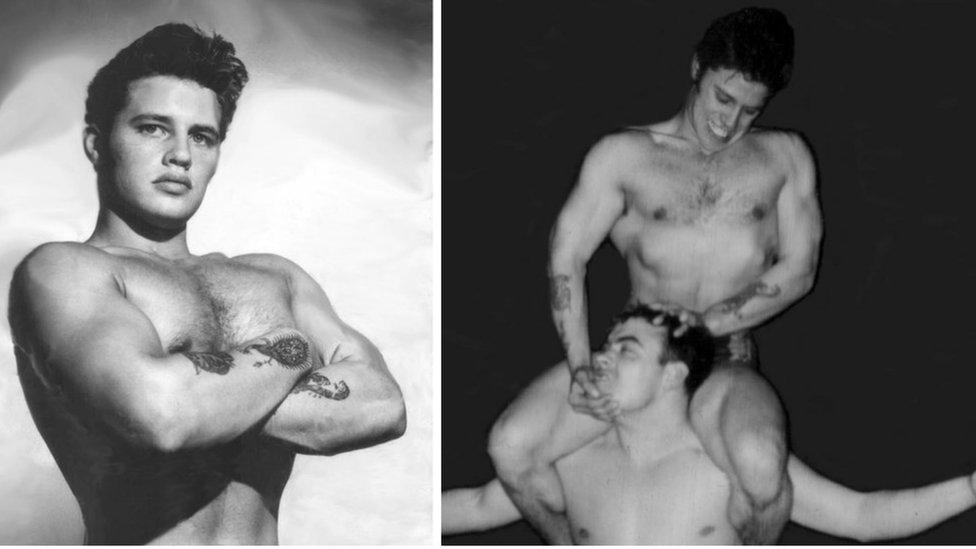
A young Adrian Street, who started wrestling in his early 20s
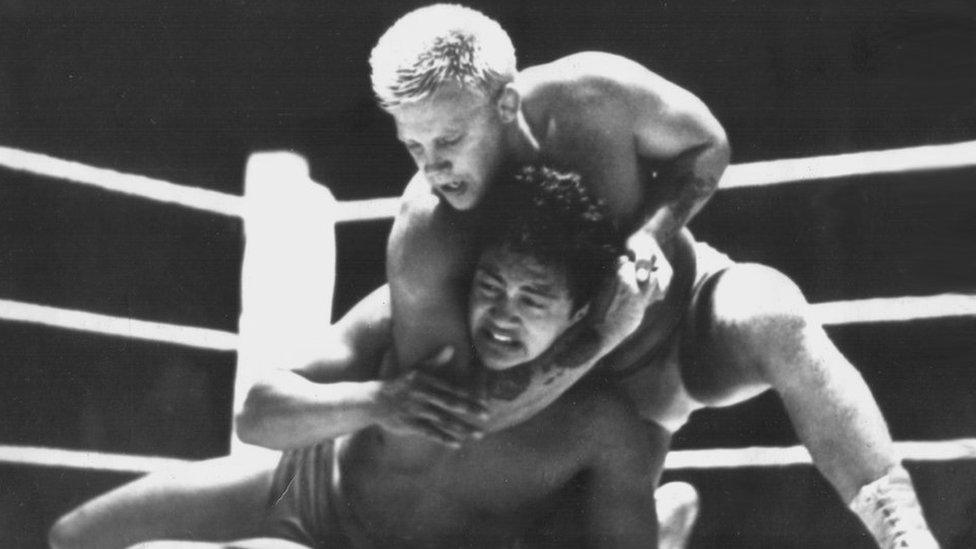
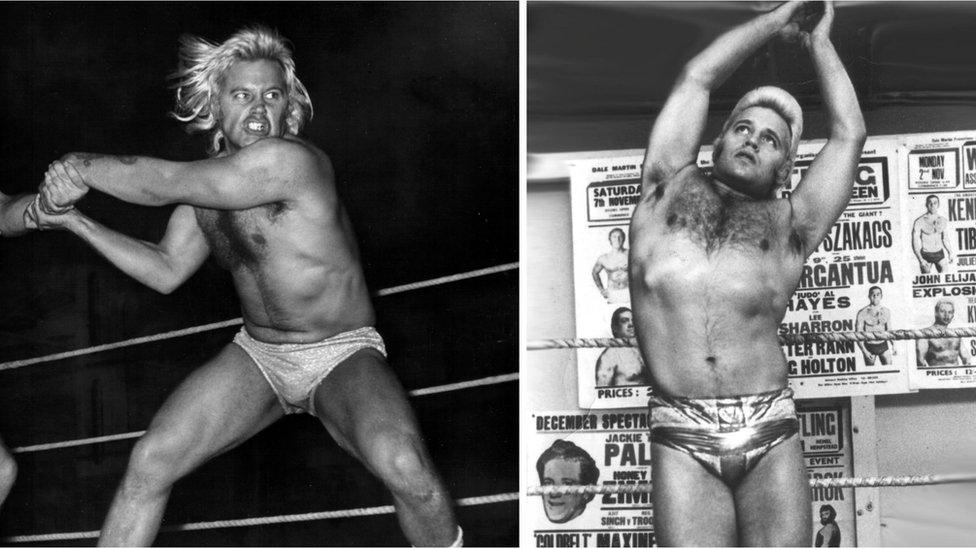
He was also mesmerised by the "larger-than-life characters" he saw in American magazines and was determined to become a wrestler.
But at home, Mr Street said he struggled with his relationship with his father: "For whatever reason he didn't like me, we didn't get on.
"He took me out of school and to work at Beynon's Colliery, Blaina, when I was 15.
"I told them (the other miners) I wanted to be a wrestler, but they laughed and said, 'you're too small'."
At 16, Mr Street ran away to London, with his colleagues calling: "They'll frighten you to death", and his dad saying, "he'll be back, he likes his mother's cooking too much".
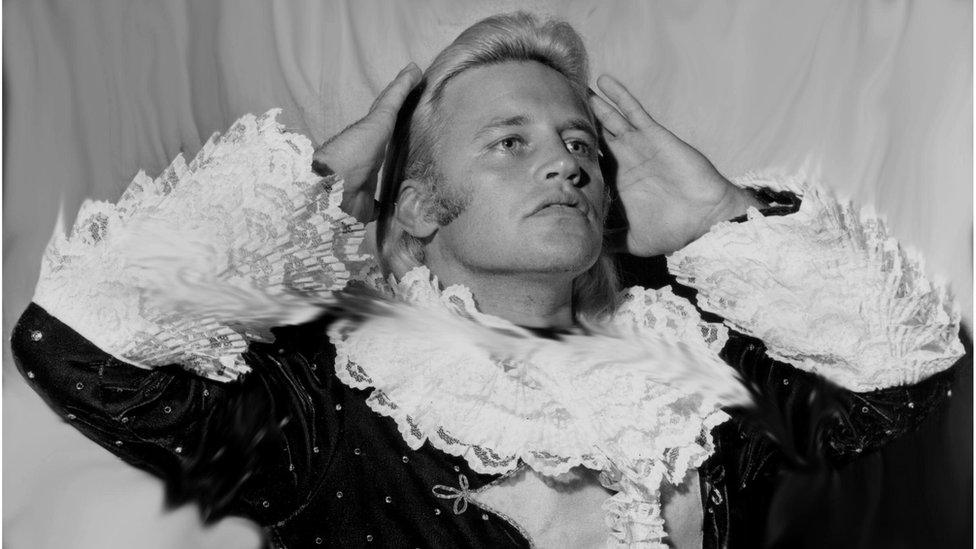
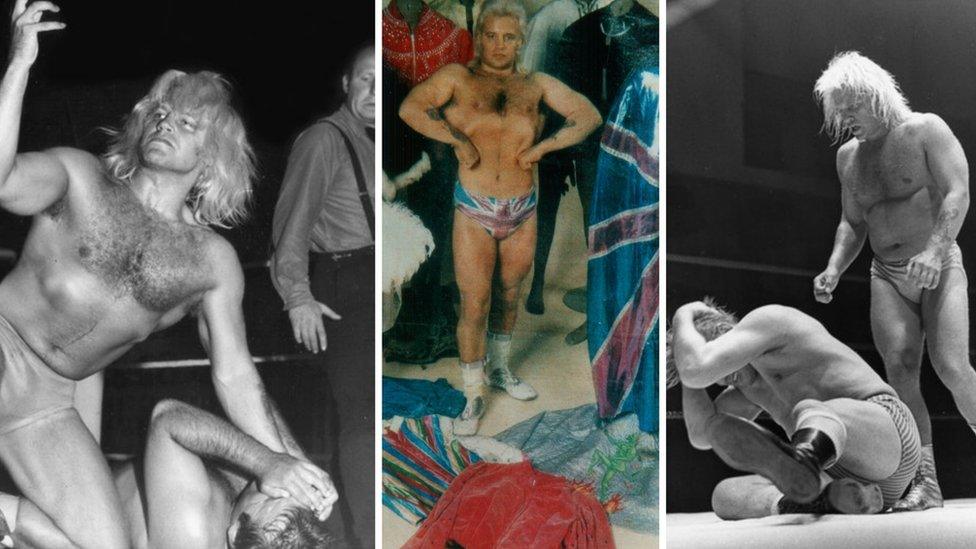
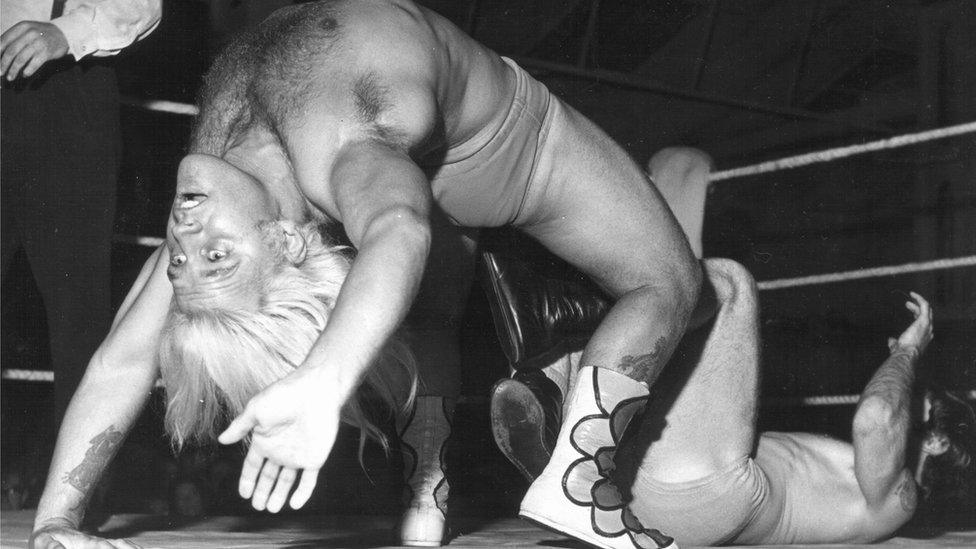
Before he got there, he worked as a fairground boxer, getting paid £1 for each of his seven daily fights.
"I remember sitting in a cafe and every time I bit into a roll, my nose would bleed over it. But I couldn't afford to waste food".
After arriving in London, he trained for four years before his break came in 1961 when televised wrestling took off, increasing the number of contests from 700 to 4,500 a year.
"They needed bodies, people to just throw in the ring," he said.
As the wrestlers travelled to events, most would eat in greasy spoons, but Mr Street ate only healthy food.
"That's when I became known as The Nature Boy.
"Ric Flair later took that name, but I was using it 10 years before his first professional fight."
Mr Street started cultivating this image, buying glamorous gowns and dying his hair blonde.
"I thought I would have a good reception, but people started saying things like 'isn't she cute' and whistling.
"At first I was horrified, but I have always been a sucker for attention and wanted more so I began strutting around, playing up to it and pushing it farther and farther."
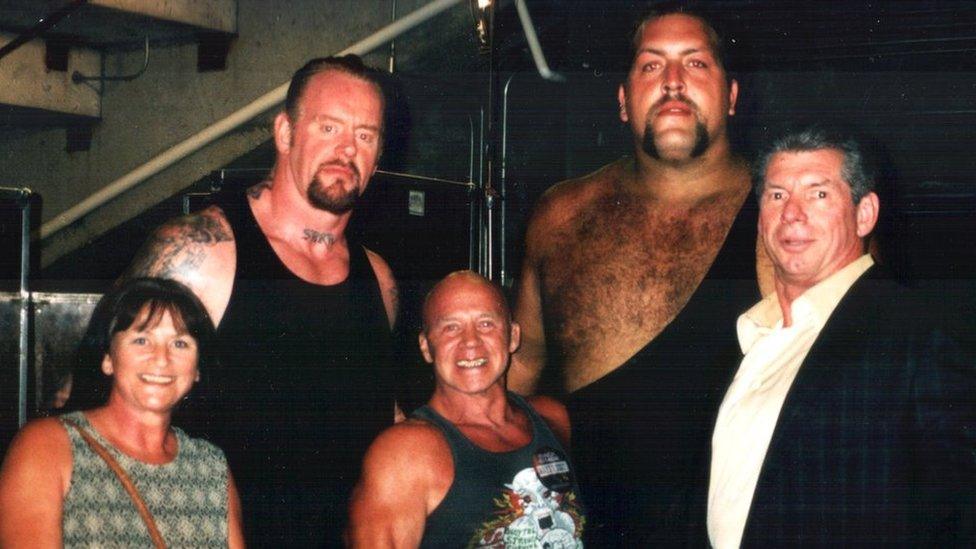
Mr Street was 5ft 7in and 10st 4lb when he had his first fight - dwarfed by later WWE stars The Undertaker (6ft 10in) and Big Show (7ft)
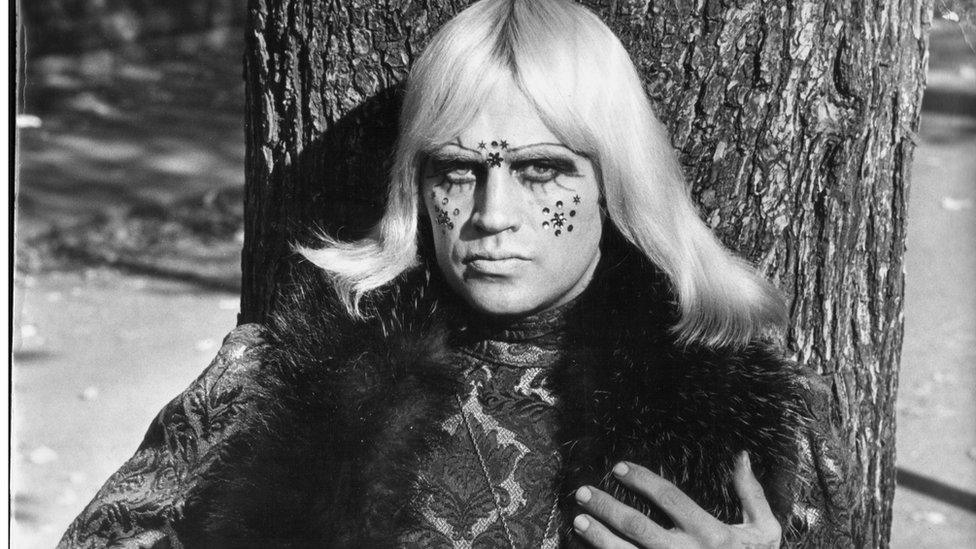
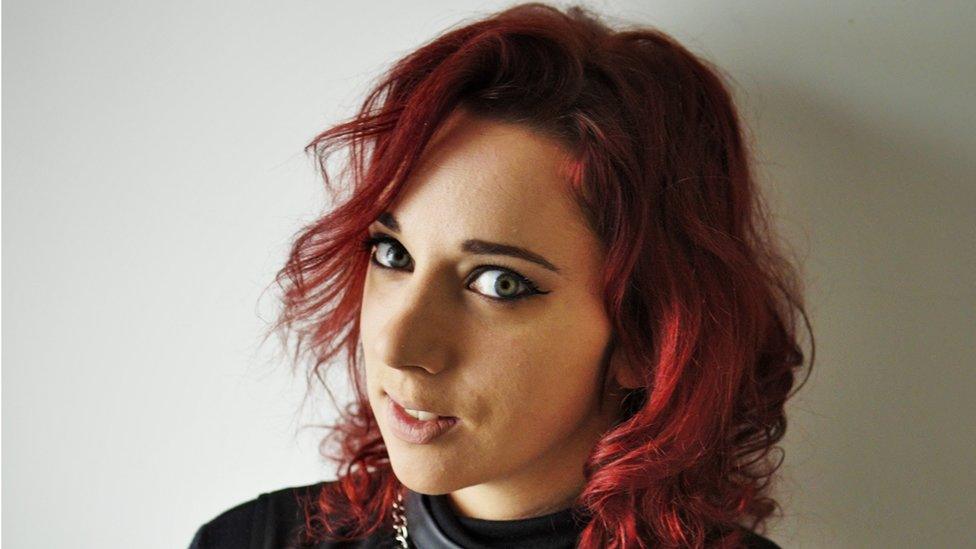
Joann Randles is producing a film on Mr Street's life
He described British fighters as the toughest and best, with Turkish mud wrestlers, Asian Kung Fu experts and Brazilian Jiu-Jitsu specialists among those brought to compete.
"Wrestling had a reputation for being fixed and often it was - if a promoter paid a lot of money to get someone over, they'd want a return.
"If someone said to me 'let the Brazilian win', he may get that but nothing else, I would fight him as hard as I could.
"That's how you promoted yourself. One of my phrases was: 'I have so many ways to hurt you'."
But Mr Street became disillusioned: "They were trying to make superstars of Big Daddy and Giant Haystacks, who were like cartoon characters and making a joke out of wrestling.
"I decided to leave for America, the land of giants, where I was once again told I was too small."
But the makeup-wearing Exotic Adrian Street, whose moves included kissing opponents to escape being pinned, won audiences over.
"I proved everyone wrong. I had my first wrestling fight in 1957 and last in 2014, when I beat a guy a third my age, at 74.
"I was a champion in every weight division and won four world titles. I don't know any other wrestler who has done that."
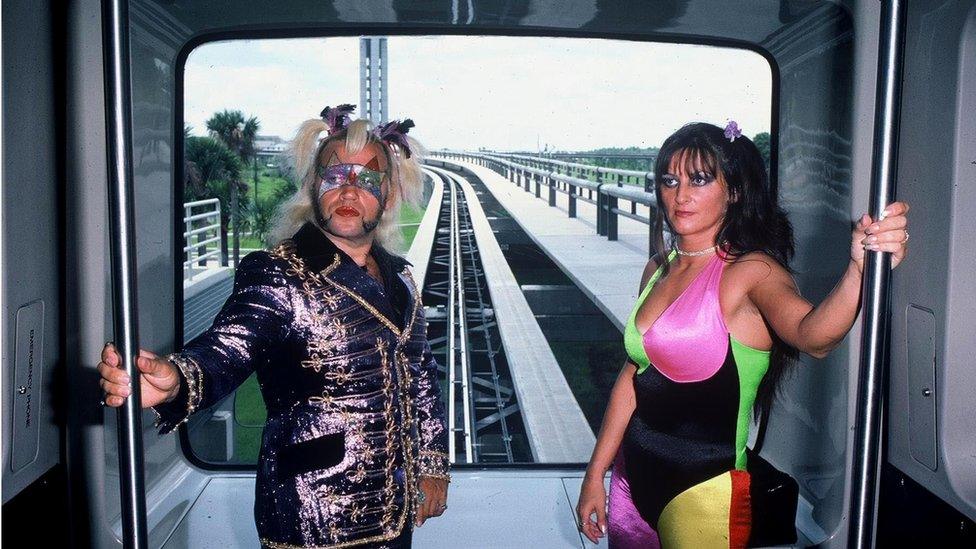
Mr Street is married to 'Miss Linda', who was his manager and ring valet from 1969
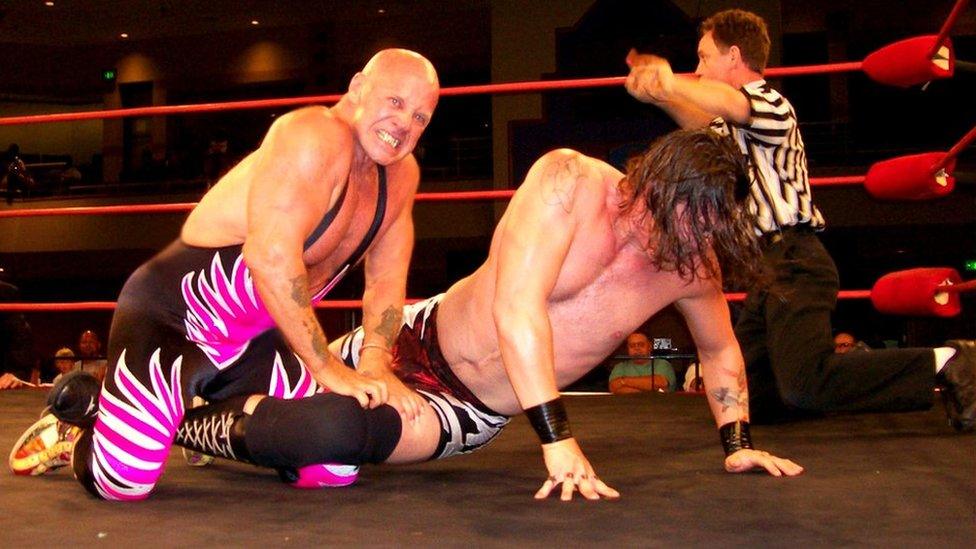
Mr Street in 2008 - during his career, he had more than 12,000 fights
It was a similar determination to succeed and become "the pit pony that won the Grand National" he recognised in Miss Randles, 27, from Tenby.
After finding her efforts to be involved in the industry blocked, she decided to find a character on which to base her own film.
"I was working as a freelancer in Manchester when I saw a video at an art gallery about this flamboyant and colourful life," she said.
"His story shows you can achieve anything if you put your mind to it. He was against the odds every time."
She contacted Mr Street - who now runs a wrestling clothing business in Florida - in June 2015 and started working on what she called "a true Billy Elliot story".
"People are constantly trying to find characters that can inspire them.
"This guy is still alive and his history is just so incredible yet so little known."
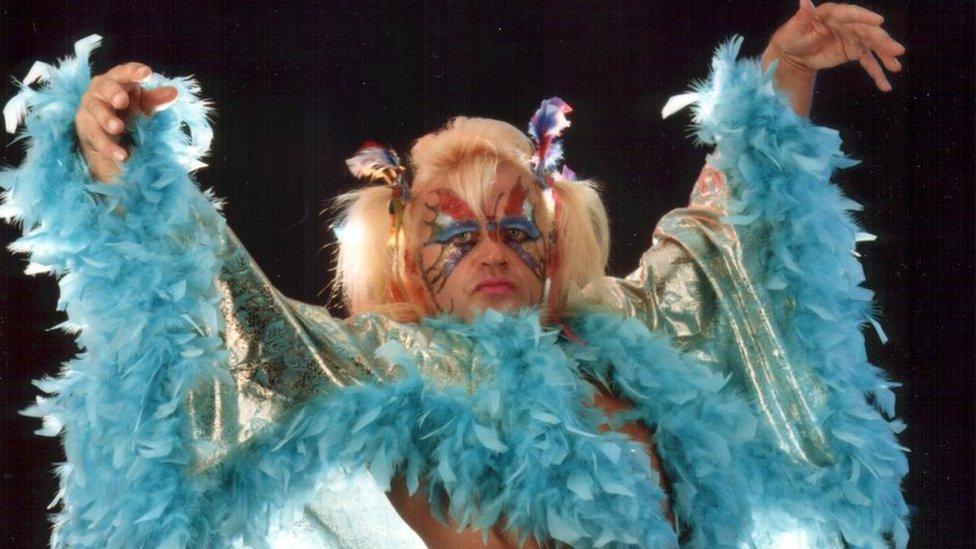
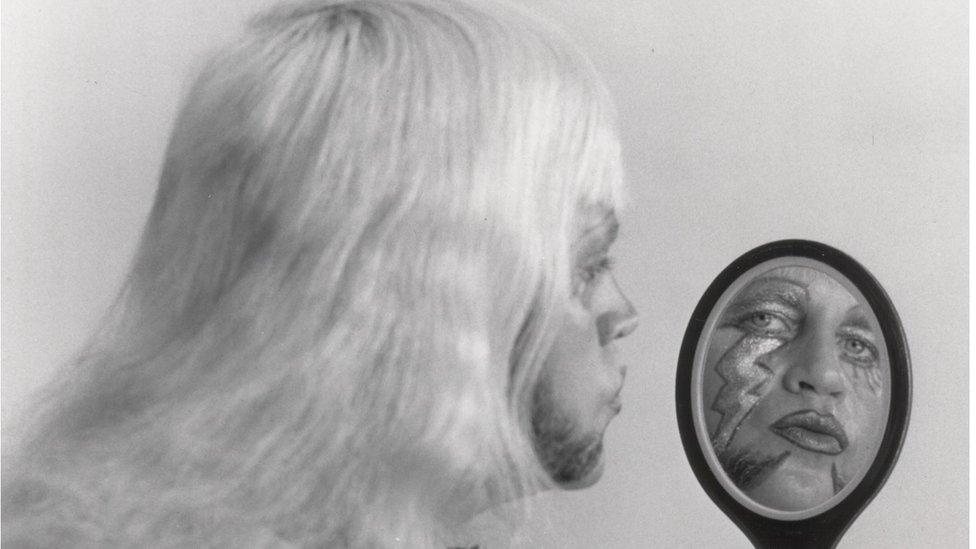
- Published29 October 2014
